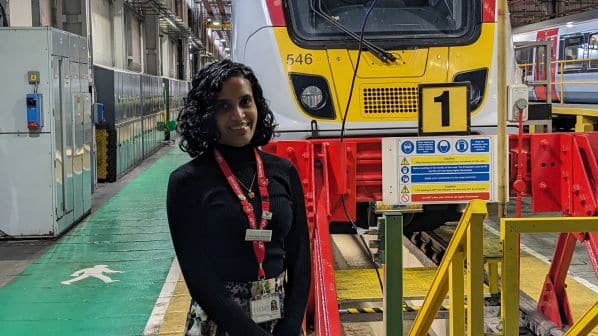THE journey from my first days as an engineering undergraduate to my current role as head of engineering and assurance at British passenger operator Greater Anglia has been an interesting one.
The needle has moved since I started, especially in recent years, with more women than ever before now working in the British railway industry. Female representation currently stands at 16%, up from 11% in 2016. However, when it comes to engineering roles specifically, women make up only 14.4% of the workforce. Clearly more work is required on both fronts if we want to encourage more women to pursue careers in this sector.
You may ask why it matters - so what if we don’t have equal numbers of male and female engineers? But representation is important. Engineers tackle some of the world's most difficult challenges, demanding the skills of the finest problem-solvers on the planet, irrespective of gender or background.
Not only is diversity of thought paramount to innovation, but women offer a unique blend of perspectives and skills that elevate engineering. Throughout my career, I have seen women bring some of the most innovative ideas to the table. I recall one train design project where a female engineer designed innovative corner clasps, resolving a flaw in the model that had previously confounded her male colleagues. Her creative input led to the development of modern, sustainable train systems that now benefit thousands of passengers every day. This illustrates the tangible impact of gender diversity in the field.
Despite the invaluable contribution made by women, there is still a misconception that engineering, and to a lesser extent the wider rail and transport industries, are sectors for men. This prevailing attitude discourages some young women from pursuing subjects like science, technology, engineering and mathematics (Stem) and from entering associated careers. As a result, the industry is missing out on a wealth of untapped potential.
Persuading prominent and successful women already working in the field to speak out about their experiences is key to encouraging the next generation to follow in our footsteps. As a female had of engineering, and the mother of two young daughters, I am very aware that I have a unique opportunity to be a role model for the female engineers of tomorrow. Addressing large groups of secondary school children is not my forte, but when my daughter’s teacher recently asked me to talk about my career in engineering to a class of fearsome 12 and 13-year-olds, I chose to become as visible as possible in the hope that I will ignite an interest in Stem subjects that will last a lifetime.
Marked improvements
Although engineering is still male-dominated, and women continue to face challenges that men do not, I have seen and experienced marked improvements in my 17-year career as a mechanical engineer working in the rail industry.
At Greater Anglia, I am lucky to work with a fantastic team of colleagues from diverse backgrounds and different genders. Not only do we respect one another's opinions, but we openly share ideas as well. This mutual respect enables us to work well together and challenge each other in a constructive manner on technical aspects, helping us to deliver the best possible outcome.
While I consider it my duty to support the next generation of female engineers, I do not underestimate the important role that my male colleagues can play in helping to achieve this ambition. I remember the engineering director at one of my early employers who quickly snuffed out the prejudices of my colleagues so they saw me as an equal. With 85% of our industry still dominated by men, this kind of support remains key to changing attitudes more broadly.
Through greater representation, mentorship and empowerment, we can create a supportive network that encourages women to pursue their passions and thrive in the engineering sector. Working together, men and women can continue to break down barriers, forge a path of inclusivity, and cultivate an environment where women play an integral role in shaping the future landscape of engineering and rail.
Nafisah Aslam-Zainudeen is head of engineering and assurance at Greater Anglia, part of Transport UK. She has worked as an engineer at operators and transport consultancies during a 17-year career in the rail industry.
Join IRJ in celebrating female rail industry success by nominating a colleague or yourself for IRJ’s Women in Rail Award. We will publish profiles of the leading candidates working across the global sector in the June edition of the magazine and on railjournal.com. Submit your nomination here by May 8.

